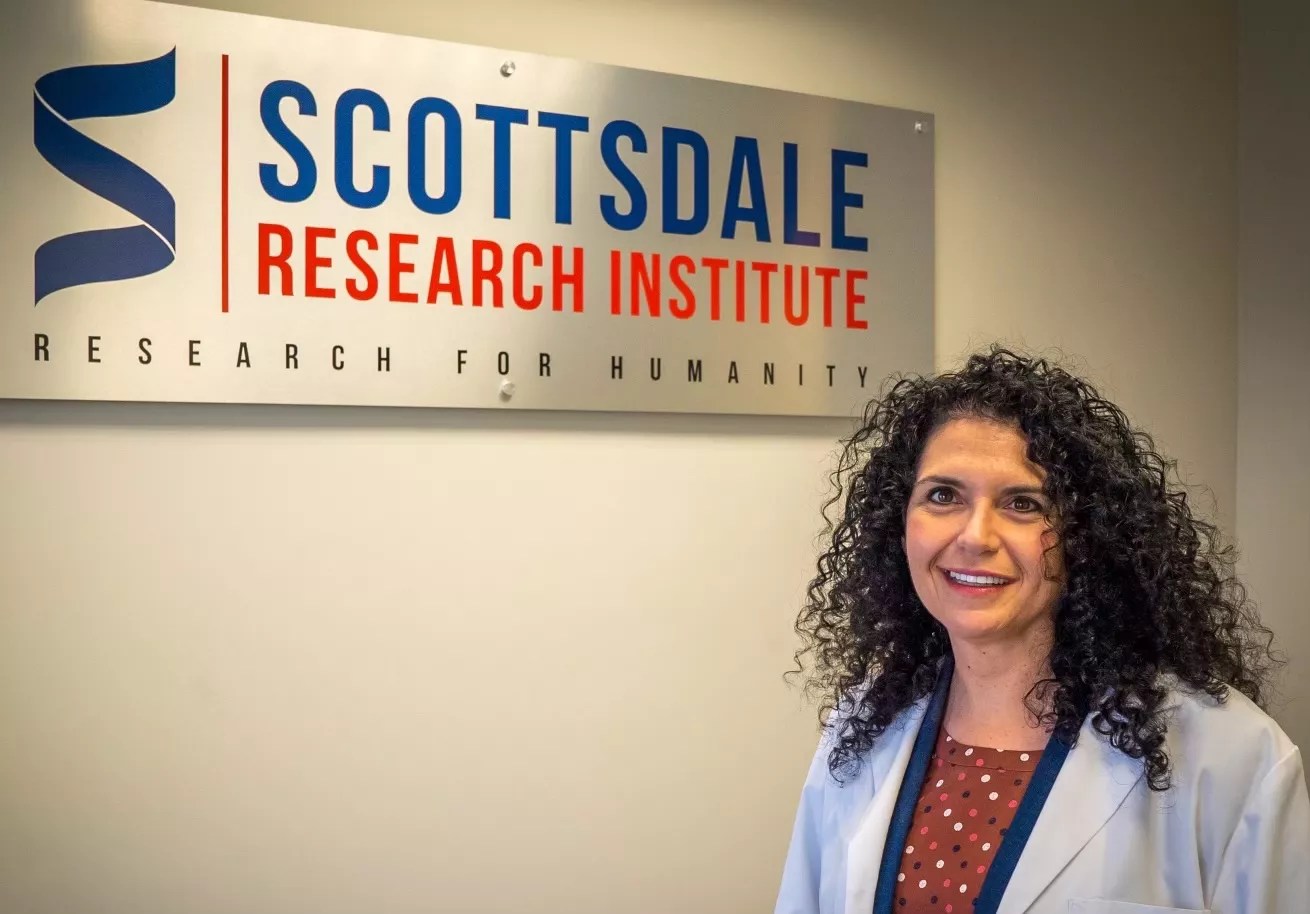
Multidisciplinary Association for Psychedelic Studies Conference

Audio By Carbonatix
The public doesn’t get many glimpses of former Sen. Kyrsten Sinema these days. When she was in office, she seemed more comfortable in backroom negotiation sessions and in the company of lobbyists and big donors. As an ex-senator – and that aloofness is a big reason why the Democrat-turned-Independent is a civilian again – the former lawmaker has similarly shunned the public eye.
When Sinema has popped up recently, though, it’s been to talk about psychedelic drugs. Earlier this year, Sinema visited her old stomping grounds at the Arizona Legislature to promote a bill to fund clinical research for ibogaine, a substance with psychedelic properties derived from an African plant. And last month, Sinema spoke on a panel at the Multidisciplinary Association for Psychedelic Studies conference in Denver.
The video from Sinema’s appearance at the conference, which was held June 16-20, was posted online earlier this week. Wearing a striped yellow dress and a jean jacket, Sinema appeared especially at ease on the panel, which also featured Ohio Rep. Tim Ryan and Ohio State University researcher Alan K. Davis.
But Sinema was giddy to be sitting next to Arizona drug researcher Sue Sisley of the Scottsdale Research Institute. Throughout the panel, Sinema gushed over Sisley – a colorful scientist whose persistent research on cannabis and psychedelics for medical purposes was ahead of its time. Sisley’s lab is organizing what is likely to become the nation’s first clinical trial of magic mushrooms.
“Literally no one is leading this effort stronger than Dr. Sisley, who has a long, long history of working with – and when not be able to work with, against – the DEA,” Sinema told the audience. “And she just wins, wins, wins!”
During the panel, Sisley wore a shirt emblazoned with “Jedi Mind Fuck,” the name of a strain of mushrooms that will be used in SRI’s trial. “People wonder – why did we pick this one? It’s mostly because I enjoy writing this on the government forms,” Sisley said as Sinema laughed. “It was an easy choice, and I think the government likes reading it too. I bet they get a kick out of it.” At several points, Sinema gave Sisley a playful shove.
“I think Sue may have won this conference with profanity and puppies,” Sinema said. “The rest of us should just go home.”
Sinema, who did not respond to a request for an interview from Phoenix New Times, has made psychedelic advocacy a feature of her post-Senate life. In Arizona, she pushed state lawmakers to pass House Bill 2871, which would have dedicated money to ibogaine research. The bill never escaped the Arizona Senate, though the new state budget has set aside $5 million in grants for the research.
Speaking to New Times this week, Sisley praised Sinema’s advocacy for psychedelic research.
“I think she’s pretty open about how she wasn’t a champion of this work at all before she left office,” said Sisley, who said she connected with Sinema only in the past year.
SRI is not eligible for the state’s ibogaine research grant because it does not have an in-house neurosurgery department, Sisley said. However, she added, “SRI is self-funding our own ibogaine research independent of the state budget bill.” The study will study the safety of ibogaine as a treatment for severe PTSD, and SRI will request permission from the Drug Enforcement Administration to manufacture the drug for research purposes.

Sue Sisley, the founder and executive director of the Scottsdale Research Institute, said the Food and Drug Administration is approving more studies of Schedule I substances under the Trump administration.
Field to Healed Foundation
A psychedelic shift
Sinema’s enthusiasm for psychedelics is emblematic of a larger political shift, Sisley said. Support for clinical studies of psychedelic and other “illicit” drugs has become more mainstream, including among Republicans. In Arizona, the Republican-controlled legislature has passed several measures promoting research or even attempting to broaden access to such drugs.
Even during the first Trump administration, lawmakers passed the Right to Try Act, a landmark law that allows people with life-threatening illnesses to participate in investigational trials of unorthodox substances if they have exhausted all other options.
“The capacity and the capability for us to utilize right-to-try in some burgeoning areas of psychedelic medicine is really exciting,” Sinema said on the panel.
Sisley said she’s noticed a shift, too. In March, the Food and Drug Administration took her magic mushroom trial off hold, a crucial step in getting it up and running. Her team has submitted its final study design to the agency, though there are other hurdles to clear.
Sisley said that Dr. Martin A. Makary, the Trump-appointed commissioner of the FDA – which is overseen by the Department of Health and Human Services, run by Robert F. Kennedy Jr. – has been green-lighting things that have previously been impeded.
“I have never seen this much movement. In 15 years of doing research on Schedule I drugs, I’ve never seen an FDA more open-minded,” Sisley told New Times. “Like, we couldn’t have ever gotten this mushroom trial approved under the Biden administration. This HHS is giving me more hope than I’ve ever had before about advancing legitimate trials on Schedule I substances.”
(Based on junk science, Kennedy’s HHS has also imperiled proven health interventions like vaccines and water fluoridation, it’s worth noting. The country’s largest measles outbreak in a decade is also happening on Kennedy’s watch.)
Since leaving office, Sinema has taken a job as a senior adviser at Hogan Lovells, a lobbying firm that has clients like OpenAI and psychedelics companies like MindMed and Lykos. It’s possible MindMed could benefit from the $5 million set aside in Arizona’s budget, raising conflict of interest concerns.
The ex-senator has also generated scrutiny for her ongoing campaign expenditures. Since leaving office, FEC records show, Sinema has continued to spend campaign finance funds on festivals, ski trips and wineries, among other things. From March 31 to June 30, a period during which she has not been running for office, Sinema’s campaign spent $391,000.
It doesn’t appear that Sinema used any campaign funds for her trip to the Denver conference; there are no expenditures in her FEC reports for those dates, and no expenditures in Colorado in general. Patrick Maddox, a spokesperson for the conference, said Sinema was not paid for her appearance.